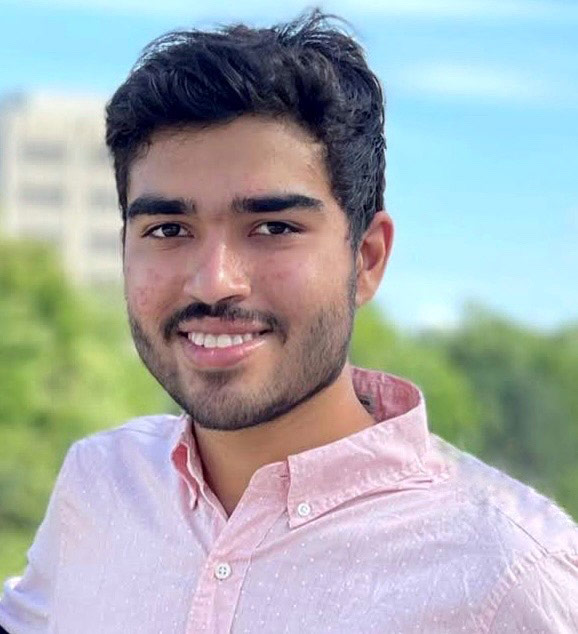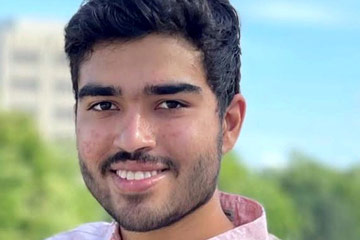
Major: Biology and Philosophy
Year: Fourth Year
The human condition is a topic that has long held the interest of philosophers and academics. Shreyas Banerjee shares this interest, and is pursuing it at Case Western Reserve University as a fourth-year student double majoring in biology and philosophy.
Banerjee’s two-pronged approach to academics allows him to study what it means to be human—from both the physical and metaphysical standpoint.
“In a morally gray world, where there never seems to be a right answer, I found studying philosophy important to give myself a sense of self and understanding,” he said. “And biology is such an intricate field with so many cool complexities that work together so well. It’s crazy how many processes need to be working just for our bodies to do any simple thing.”
Banerjee’s coursework in these areas isn’t the only thing that has held his attention at the university. He is passionate about student organizations and their role in creating an active, involved student body.
“We all have different paths that we navigate during our journeys here, with each of us being part of different clubs and taking different classes and being involved in different corners of campus,” said Banerjee, who is the executive editor and publisher of the student newspaper, The Observer. “I’ve come to appreciate that we all have our own stories—and all of them deserve to be heard and supported.”
In his role at the paper, and as chair of the SEC Allocations Committee, he’s been able to tell stories about organizations on campus and offer them support. The committee is responsible for all matters regarding the portion of tuition that goes toward student activities—funding all the major umbrella organizations, auditing them to maintain their financial integrity, and supporting smaller clubs and other initiatives that need extra funds.
For Banerjee, these efforts have something in common: the need to advocate for the best interests of the student body. Banerjee acted on this need as fund manager for the Student Activities Fee COVID-19 Emergency Fund, which provided resources for students to be able to afford plane tickets, storage for belongings, technology needs and more when the pandemic hit the United States and students weren’t able to remain on campus.
“I was driven to help restore student life here at CWRU via my work at The Observer and the Allocations Committee so new students could be a part of a thriving campus culture that [the pandemic took away],” he said.
While Banerjee is fervently involved with these organizations, they aren’t what initially attracted him to the university. They were just a bonus.
“Living in Ohio for most of my life, CWRU was always the preeminent institution in the region,” said Banerjee, who plans on attending medical school after graduating. “The fact that it happened to fit my desire to attend a smaller institution with a strong focus on academics and support for pre-med students made it all the more appealing.”


